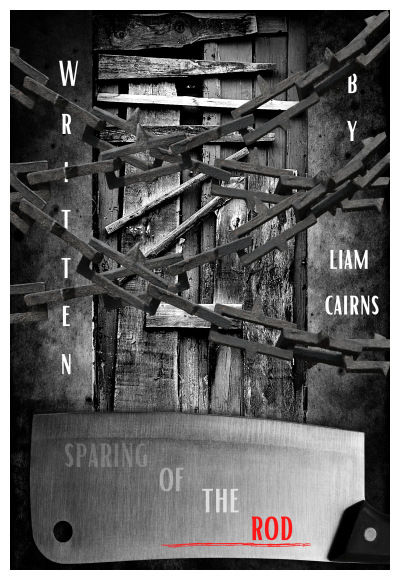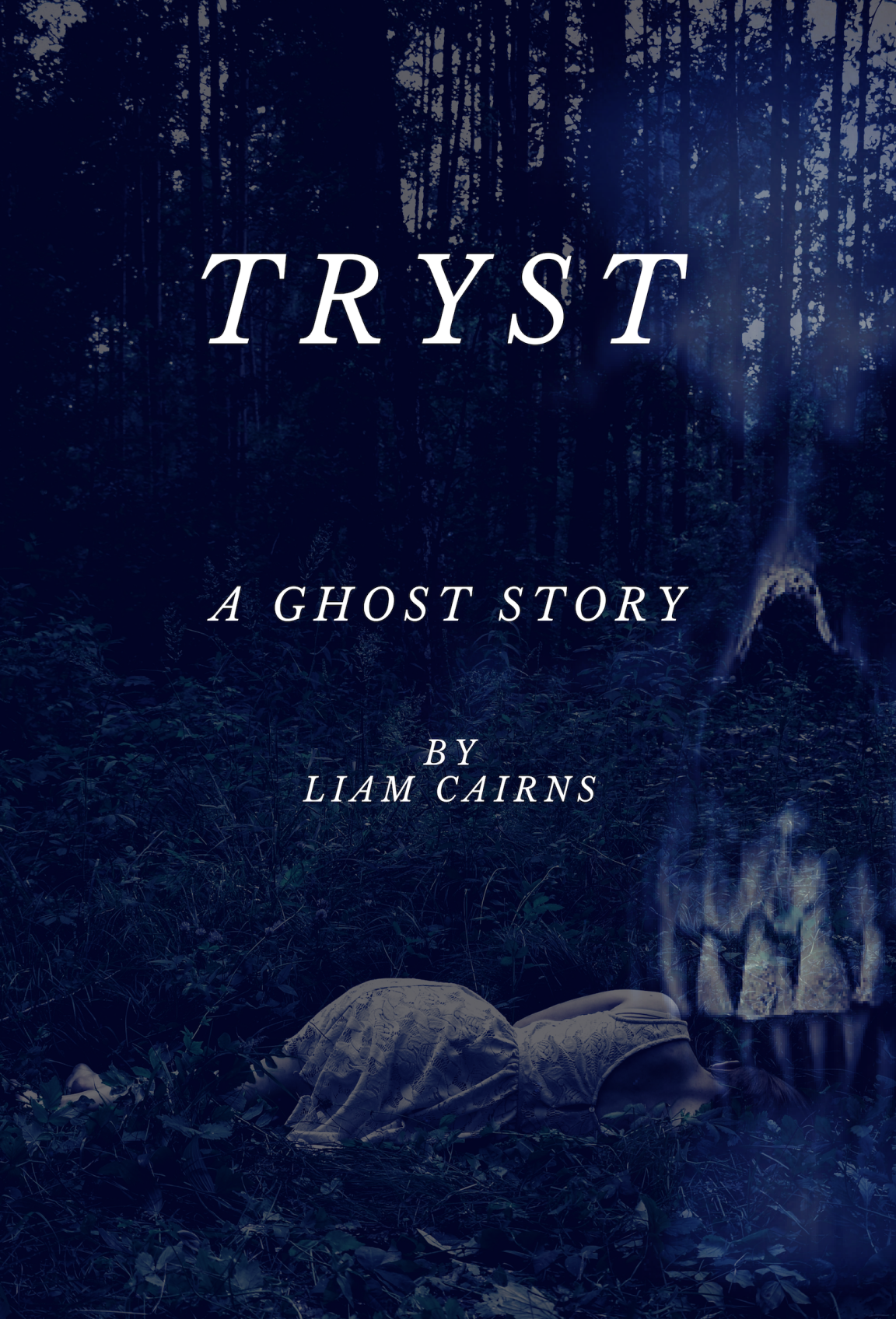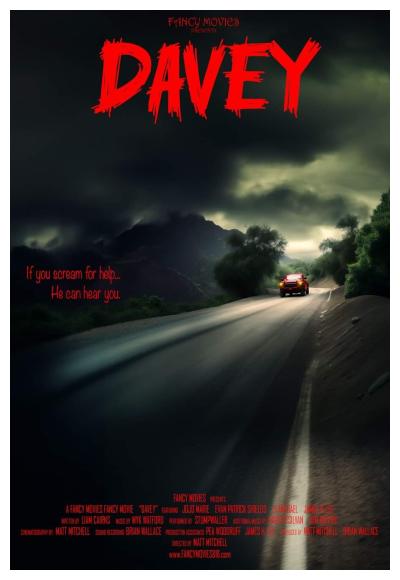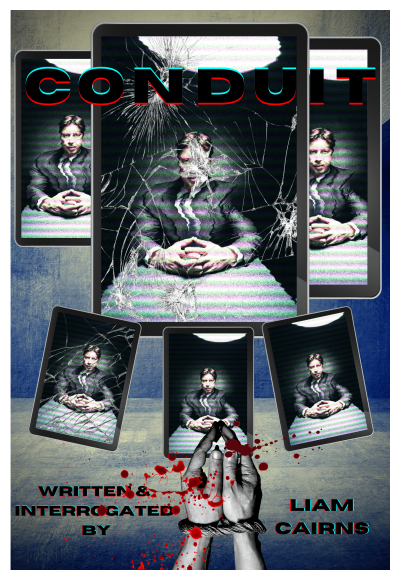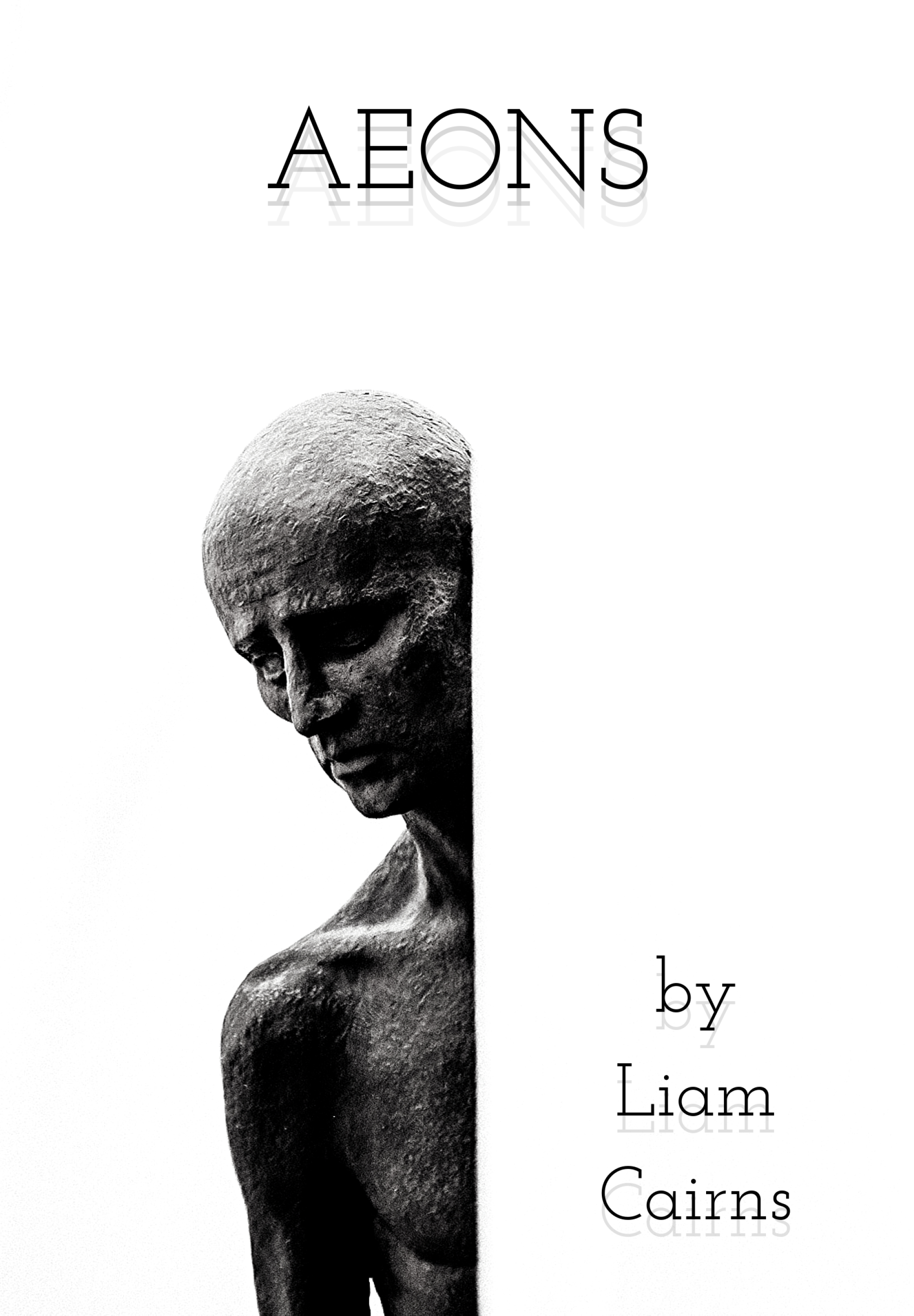
Synopsis/Details
An old man, Alan Fairbank, retired yet content, languidly feeds ducks by the river. He enjoys watching them squabble over the feed that he throws to them. Unbeknownst to Alan, a stranger in dark clothing sits on the opposite end of the bench, also watching but in a quiet state of melancholy. The old man turns and sees him, startled by his sudden appearance. He (attempts to) strike up a conversation. The Stranger, however, seems troubled to be there. A death in the family perhaps? "Not yet," the Stranger replies, "but soon". Alan, taking pity, offers his bag of pellets to the stranger. The brooding man tries to politely decline but the old man is patiently insistent. The Stranger warns the old man that the ducks may not like it. He relents anyway and casts some feed into the water. He thanks Alan, by name, for his kindness and they shake hands. Alan is taken aback; how could the stranger possibly know his name? Suddenly, a heart attack claims him. The Stranger gently lowers the old man's body onto the bench and respectfully closes the eyes. The ducks, having eaten what the stranger threw, lie dead on the water's surface. The stranger moves on.
He passes a large crowd of people gathered around a crime scene. The curious gawp. Photos are taken. The police warn the crowd to move along. At the periphery of the scene stands Vic Updyke, a young bohemian sketching out the scene in his artists pad. "I had just about given up on you showing up," he says in an overly familiar manner to the stranger. A fellow immortal entity? They discuss art. The Stranger compliments Vic's detailed line drawing depicting the maimed corpse. Vic compares the Stranger's work to that of an artist. He considers historical events such as the Holocaust and Stalin's purges some of the stranger's "greatest hits". The Stranger denies such claims. "There is nothing artistic about what I do," he insists. Vic shows more of his artwork; nothing but gruesome murals of self-mutilation and suicide. The Stranger accosts Vic for comparing the Stranger to that of a saviour. Vic disagrees. Looking back to the crime scene, the Stranger realises that the body lying in the road is Vic's. A police radio confirms that it was a suicide. Vic rolls up his sleeves and displays the scarring on his arms, similar to the acts of self-harming drawn in his sketchbook. Death is his saviour. The Stranger refuses to agree with this and leaves Vic alone to his torment. Vic calls out, suddenly terrified, the reality of loneliness sinking in. He once again tries to convince the Stranger that he truly is a saviour.
"I've never saved anyone," The Stranger whispers.
He runs, disturbed by his encounter with Vic, overwhelmed with feelings of sorrow and despair. He races past a couple, a road sweeper, teenagers, etc, all of whom fail to notice him. He ends up at the gates of a churchyard. He collapses against the gates, weeping uncontrollably. Nearby is the broken top of a glass bottle. He attempts his own suicide. Of course, it is fruitless. The bottle is smashed into pieces against the gates. He slumps to the ground and cries.
Time passes. The night wanes. The Stranger wallows in self-pity. A tramp micturates onto a bin, drunkenly singing an old folk song about death. A voice in the distance castigates the man singing and tells him to be quiet. The tramp sings louder. The Stranger can't help but smile a little; "I hate that song."
A rattling at the gate breaks his ennui. Clara-Bell Sanders, the local vicar, opens the gates and enters the church. The Stranger is intruiged and, dissolving through the iron bars, follows her. Inside the church, Clara-Bell prays to God. Her faith is at an end. The suffering of her parishoners is too much to bear now and she expresses disdain for God. His presence is no where to be seen: "[T]he more I look around, the less of you I see." Asking for God to speak, one last time, she throws her clerical collar onto the ground and condemns God's silence. In that moment, she feels the presence of the Stranger, who sits two places behind her in the opposite row. She demands to know what he's doing there. The Stranger is amazed that she is able to see him, even though it is not her time to go. He reassures her that he is not a thief and that he is only here because of her nightly visitation. Convinced he is not here to do harm, she offers him the church for the night believing him to be homeless. He explains he that it might not be possible as he goes where he is needed. She is confused, unclear about what he is reffering too. He commends Jesus's bravery in the face of death but Clara-Bell asks him not to mock. He reassures her that his words are sincere. He opens up to her, explaining what his true nature is. She humours him in disbelief. Having lost all faith in a divine power, she openly critisises the cross in the church. "It's empty. Just like his promises," she says, disappointed. But, before she leaves, she asks for his name. He has not one but many; different races have named him differently and seen him in different visions. He reveals how long he has been here on Earth and that the weight of his responsibility and life everlasting have left him tired and desperate to meet his own end. When Clara-Bell, now half-believing he is some sort of supernatural entity, asks if he believes humanity will exist for much longer, he replies, "I hope not." She leaves.
The Stranger, compelled by Clara-Bell's lack of faith, begins to recite the Lord's prayer. His prayer continues over the top of another visit he makes. He drifts through the corridors of the hospital, past hospital staff, shadowed corridors, rows upon rows of the sick and terminal. He ascends a flight of stairs to an ICU. Arriving at a security protected door, he waves a hand and the door opens by itself. He arrives at his destination.
An infant in an isolation unit. He is drowning in his tears. With another wave of his hand, the unit and wiring fall away leaving the sleeping baby exposed. He picks it up with paternal tenderness and cradles the baby in his arms. The prayer ends; "forever and ever...".
He apologises to the child as it stirs from its slumber.
Story & Logistics
Story Type:
Set Mission
Story Situation:
Remorse
Story Conclusion:
Tragic
Linear Structure:
Linear
Moral Affections:
Condemnation, Penitence, Punishment
Cast Size:
Several
Locations:
Few
Special Effects:
Blood, Other on-set effects, Other post processing effects
Characters
Lead Role Ages:
Female Middle Aged, Male Adult, Male Young Adult, Male over 45
Hero Type:
Unfortunate
Stock Character Types:
Tortured artist, Town drunk, Wise old man
Advanced
Subgenre:
Experimental, Tragedy
Equality & Diversity:
Elderly Focused
Life Topics:
Afterlife, Approaching Death, Death
Super Powers:
Physics or reality manipulation, Transportation and travel
Time Period:
Contemporary times
Country:
United Kingdom (UK), United States of America (USA)
Time of Year:
Autumn/Fall
Illness Topics:
Psychological
Writer Style:
Ingmar Bergman, Terrence Malick


